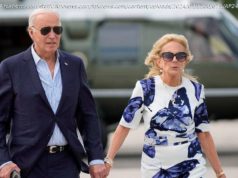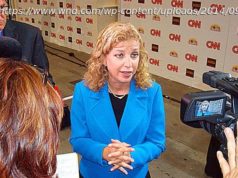Despite President Trump grousing about China’s high tariffs on American cars, China ranks as the second largest importers of U. S. automobiles, according to the…
Despite President Trump grousing about China’s high tariffs on American cars, China ranks as the second largest importers of U. S. automobiles, according to the administration’s own numbers.
Mr. Trump likely will hear more about that Friday when he huddles with automotive executives at the White House.
An outspoken champion of the U. S. auto industry, the president repeatedly boasts of new car and truck plants opening in the South and Midwest since he took office — part of the rush of companies he says are now returning to the U. S. after decades shipping jobs abroad.
But Mr. Trump ’s trade policies, specifically tariffs on steel and threat of trade war with China, has raised eyebrows among U. S. automakers.
The president also will get an earful about the administration’s push to lower Obama-era fuel efficiency standards and the clash with California over its higher standards, as well as the hodgepodge of emissions requirements from state to state.
Major automakers this week called on the administration to keep raising fuel economy standards through 2025 and reach an agreement with California to avoid a court battle.
“They wouldn’t be meeting with [ Mr. Trump] if they thought everything was going well,” said Bruce M. Belzowski, managing director of University of Michigan Transportation Research Institute’s Automotive Futures group.
Still, the automotive industry doesn’t want to alienate a president who has been overwhelmingly pro-business.
“It is going to be business leaders talking to a business leader,” said one industry insider.
Mr. Trump frequently points to Beijing’s high tariffs on automobiles to highlight the two country’s unequal trade relationship. He wants a more balanced relationship.
“The word that I want to use is ‘reciprocal.’ When they charge 25 percent for a car to go in, and we charge 2 percent for their car to come into the United States, that’s not good,” Mr. Trump said in March when slapping tariffs on $50 billion of Chinese high-tech imports.
Mr. Trump has demanded a $100 billion reduction in America’s $375 billion annual trade deficit with China, and forcing Beijing to open its market to more U. S. automobiles has been a top issue for the administration.
But the U. S. enjoys a trade surplus with China with autos.
The U. S. imported 58,000 vehicles worth $1.5 billion from China in 2017, while exporting to China 267,000 automobiles with $9.9 billion, according to the Commerce Department.
The cars and trucks made in China — mostly by U. S. automakers with factories in the communist country — accounted for less than 1 percent of the $191 billion worth of autos imported last year to America, according to the data collected by Commerce.
The administration’s proposed tariffs expanded to target $150 billion worth of Chinese goods. That’s on top of the administration’s 25 percent tariff on steel and 10 percent tariff on aluminum.
Beijing responded with tariffs targeting automobiles and a variety of U. S. goods including soybeans, sorghum and aircraft.
General Motors CEO Mary T. Barra, who will be at the roundtable, balked at the tariffs beginning with the first round that hit steel and aluminum, although the administration later exempted most countries that are major exporters to the U. S.
“If changes occur that drive the cost up, it will have a direct impact on demand, because there is an affordability issue with cars we have to stay cognizant of,” she told CNBC. “If there is an increase to the point that people stop buying cars and used cars, that will affect jobs.”
Alliance of Automobile Manufacturers spokesman Wade Newton said the industry remains solidly behind Mr. Trump because of the tax cuts and regulatory rollback that is growing U. S. manufacturing and jobs.
He gently pointed out the differences when it comes to tariffs, noting that automakers already source the majority of their steel and aluminum from U. S. producers.
“However, these tariffs will result in an increase in the price of domestically produced steel — threatening the industry’s global competitiveness and raising vehicle costs for our customers,” he said.
“Keeping vehicles affordable means higher sales, more auto sector jobs, and faster fleet turnover — translating into fuel economy gains and safety improvements.”
Mr. Newton added that the Auto Alliance would “encourage a careful re-evaluation of these tariffs so they address legitimate concerns while not harming the users of these critical materials.”






